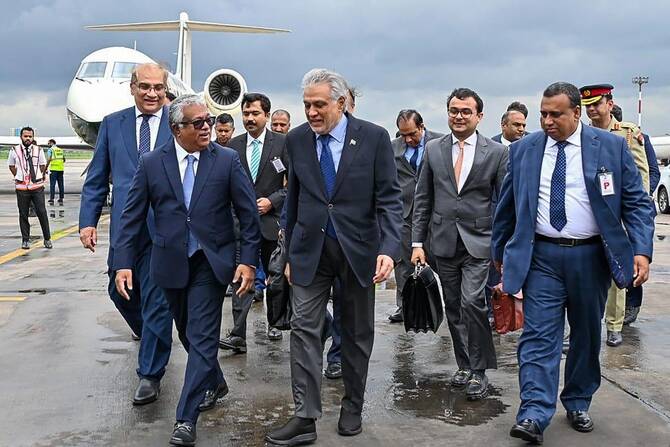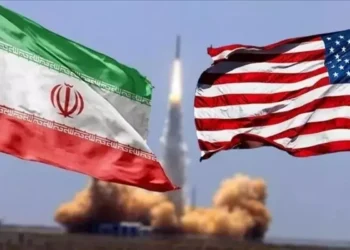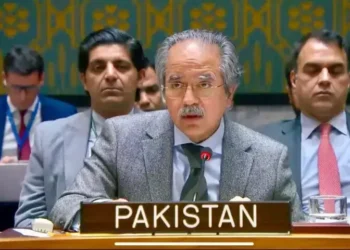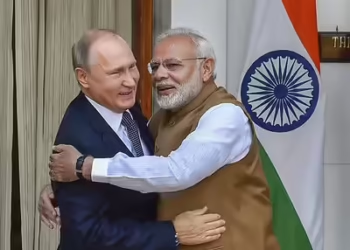DHAKA; Deputy Prime Minister and Foreign Minister Ishaq Dar on Saturday described his trip to Bangladesh as the beginning of a “new phase of reinvigorated partnership” between the two South Asian nations. The visit is being seen as a milestone, marking the first official trip to Dhaka by a Pakistani foreign minister in over 13 years.
Relations between Islamabad and Dhaka have gradually warmed since August last year, when a popular uprising toppled Sheikh Hasina’s government in Bangladesh. In the months since, trade exchanges and bilateral cooperation have seen renewed momentum, with both sides expressing the will to move forward in a constructive spirit.
Dar arrived in Dhaka earlier in the day for a two-day official visit. Speaking at the Pakistani High Commission, he extended a broad invitation to Bangladeshis to visit Pakistan and strengthen people-to-people contacts. “Our hearts are open, and our intent is sincere,” he said, underlining Islamabad’s desire to build a “forward-looking relationship” rooted in cooperation and mutual respect.
The deputy prime minister noted that Pakistan’s engagement with Bangladesh would not remain confined to official channels. Instead, he pledged to work closely with political stakeholders, academia, civil society, media and youth from both nations to advance common goals of peace, prosperity and regional stability.
Dar said the timing of his visit was crucial, with South Asia and the wider world confronting rapid change. He pointed to shared challenges such as climate change, economic volatility and security threats, urging the youth of Karachi and Dhaka, Quetta and Rajshahi, Peshawar and Sylhet to join hands in shaping a better future.
Reviewing the state of relations, Dar expressed satisfaction that the past year had seen “significant progress” across multiple areas, including trade, culture, education and high-level exchanges. He called this renewed momentum a reflection of the “new energy and fresh enthusiasm” driving Pakistan-Bangladesh ties.
The foreign minister also highlighted convergences on regional issues, particularly the revival of the South Asian Association for Regional Cooperation (Saarc). Acknowledging Bangladesh’s role in Saarc’s creation, he said the region, home to a quarter of the world’s population, could no longer afford to lag behind in cooperation and integration.
During the first day of his visit, Dar met delegations from the National Citizen Party, Jamaat-i-Islami, and the Bangladesh Nationalist Party. Discussions centred on bilateral ties, regional dynamics and the importance of cultural and youth exchanges. Pakistan’s Foreign Office described the meetings as cordial and forward-looking.
Dar also paid tribute to the resilience of the people of both nations, stressing that their shared cultural, spiritual and historical links went beyond politics. “Despite the twists and turns of history, the people of Pakistan hold the people of Bangladesh in the highest esteem,” he said, adding that the future must be defined by “what unites us, not what divides us.”
The landmark visit is expected to culminate in the signing of several memorandums of understanding in trade, culture, media and travel, further cementing what Dar called a “fraternal and cooperative relationship” between Pakistan and Bangladesh.



































































